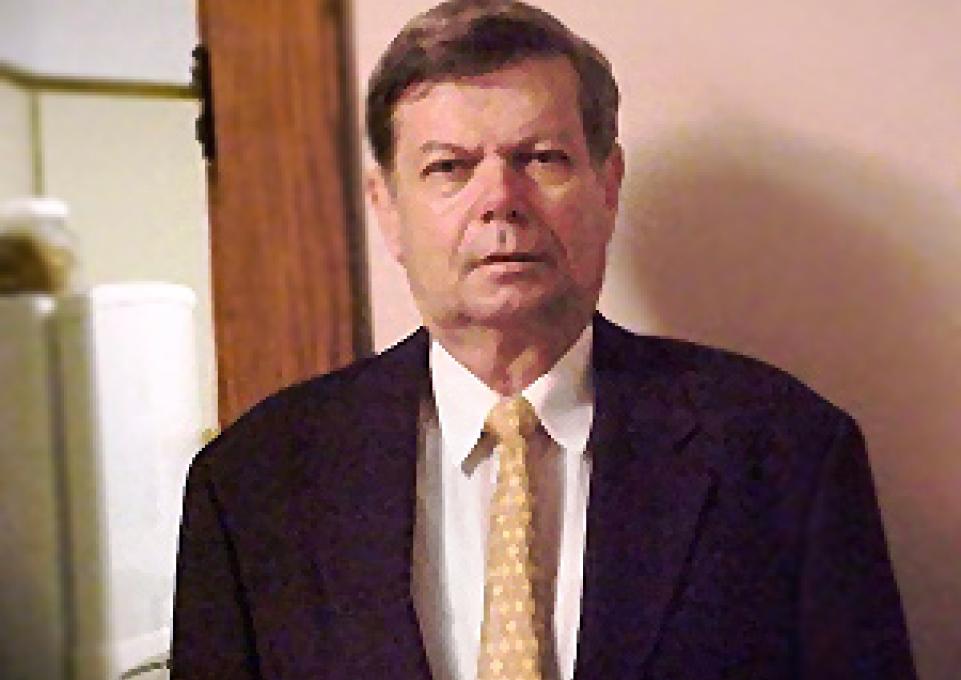
When it comes to online gaming, Joseph M. Kelly, professor of business, doesn't play. But he is a longtime expert, having studied gambling since the 1980s and the online version since the birth of the Internet.
At age 75, Kelly is a study in diversification. Along with teaching business law at Buffalo State, he’s an associate with the New Jersey-based Catania & Ehrlich law firm, which specializes in gaming law. Although he’s licensed to practice law in Nevada, where he once lived, he spends more time as an expert witness for gaming companies. He also has spoken at online gaming symposiums at such esteemed institutions as Harvard University and serves as co-editor-in-chief of Gaming Law Review and Economics.
In recent weeks reporters at media outlets from the New York Times to Bloomberg.com have contacted Kelly to get his insight into the ongoing controversy over daily fantasy sports.
New York State’s Attorney General Eric Schneiderman filed a lawsuit against the two most prominent daily fantasy sites, FanDuel and DraftKings. He maintains that their games, which involve choosing a roster of athletes that earns points based on the players' performance in real games, are essentially online betting, and that is illegal in New York. He warns that players can lose a significant amount of money with just a few clicks of the mouse or touch of the smartphone.
Kelly explained that daily fantasy sports differs from seasonal fantasy sports because players typically have expertise in one sport and they predict athletes’ performance on a daily basis rather than for the length of a season.
"It requires a great deal of skill," said Kelly. "This is why a small amount of people has won so much money."
The question of whether chance is "a material factor" is at the crux of the attorney general's lawsuit. New York is one of a dozen states that uses this test.
"If skill predominates over chance, it's not considered gambling in the other states," said Kelly. "The attorney general has a greater chance of winning if he can show that chance is a material factor.
"If he does win, fantasy sports operators will have to undergo regulation. And this isn’t a bad thing. Right now, there is no regulation of any fantasy sports to prevent the use of insider information and money laundering."
At least a dozen states are watching Schneiderman’s case closely as they consider legislation that would regulate the industry. Kelly predicts that daily fantasy sports will continue to grow in popularity, though there will be more of an attempt to regulate it.
Regardless of heightened interest by many, for Kelly, online gaming will remain an academic exercise.
"It's not that I don't play due to moral or religious objections," he said. "It's just not fun for me. If I'm addicted to anything, it’s classical music. I like to hear live orchestras and operas. I love the theater and going to the Shaw Festival.
"And I like to work with young people in the classroom," he added. "Interestingly, in my business law class, I play down the importance of any kind of gambling."
About Joseph Kelly
With a juris doctor and doctorate in history, Kelly joined the Buffalo State Business Department in 1990 where he now teaches business law. Kelly has served as an expert witness for gaming companies, the Virgin Islands Casino Control Commission, and the South African Parliamentary Committee on Trade and Industry. He also served as the major speaker on poker law at the Barcelona conference of the International Association of Gaming Regulators in 2006. This year, he has spoken on online gaming topics at conferences organized by Morgan Stanley, iGaming, the American Gaming Association, and the American Bar Association.
